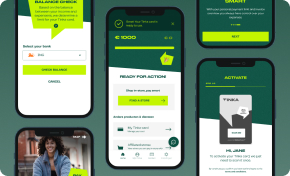Enterprise application software are tools that enable companies to simplify operations, increase productivity, and create new growth opportunities. Enterprise apps (EAs) are large-scale software systems designed to operate within corporate environments, including businesses and governments. These systems are integral to the digital infrastructure of modern organizations, enabling them to streamline operations, automate processes, and manage data across various departments.
This article delves into the definition, types, examples, and challenges associated with enterprise application software, drawing insights from various sources to provide a comprehensive overview.
What is Enterprise Application Software?
Enterprise application software is a complex, scalable, and integrated software solution that serves the complex needs of large businesses. It integrates computer systems that run all phases of an organization’s operations, aiming to enhance efficiency and productivity. These enterprise apps are business-oriented and often available as suites of customizable programs. They support a range of business operations, such as management reporting tasks, production operations, and back-office functions.
According to Statista, the global enterprise software market is expected to show an annual growth rate (CAGR 2024-2028) of 6.55%, resulting in a market volume of $376.4 billion by 2028.
Custom Software Development for a Competitive Edge
Build Unique Software Solutions with Our Expertise
Explore Custom SoftwareTypes of Enterprise Apps
The variety of enterprise apps allows businesses to pick the platform that best fits their needs and industry. For instance, a manufacturer’s enterprise application software needs might be different from those of a software company focusing on web development. Finding the right enterprise app for your company shouldn’t be difficult, which is why we categorize all enterprise apps into one of five buckets.
Enterprise Resource Planning (ERP)
ERP systems integrate different departments in an organization by unifying data and processes. They ensure financials, inventory, procurement, and human resources are integrated. Moreover, they are ideal for production. SAP S/4HANA and Oracle NetSuite are among the top ERP solutions.
Customer Relationship Management (CRM)
CRM software simplifies the task of managing customer interactions and leads and boosts client retention. Salesforce, Microsoft Dynamics 365, and HubSpot are widely used CRM platforms.
Supply Chain Management (SCM)
SCM applications are responsible for the movement of goods, information, and funds within the supply chain. This is done through inventory management, demand forecasting, logistics, and supplier collaboration. For instance, JDA Software and Kinaxis RapidResponse are two such systems.
Human Resources Management Systems (HRMS)
HCM systems automate the relevant personnel processes such as hiring, payroll, appraisal, and employee training. Workday and ADP Workforce Now are the most popular HCM solutions.
Business Intelligence (BI) and Analytics
BI tools enable a closer look at data from many sources that provide valuable feedback. They assist authorities in making various decisions in an informed manner. Tableau, QlikView, and Power BI fall into this category.
Redefine Your IT Strategy with Our Consultancy
Customized Solutions for Optimal Performance
Discover IT ConsultingReal-life examples of Enterprise Application Software
Even within each category, the competing enterprise apps offer varying degrees of different features for clients. Real-time data, logistics planning, sales analytics, and project management are available on certain platforms. Considering your budget and needs, one or a few options below might be your next choice for enterprise application software.
SAP ERP
SAP ERP (Enterprise Resource Planning) is a flagship application suite characterized by application integration. It is all about business functions like finance, procurement, production, inventory management, and human resources. SAP ERP provides capabilities such as real-time data visibility, process automation, and advanced analytics.
A multinational manufacturing enterprise uses a SAP ERP to control its worldwide supply chain. The system monitors raw materials inventory, production plans, and distribution logistics. This feature is helpful as the financial teams rely on SAP ERP for precision reporting and budgeting and to remain in line with regulatory frameworks.
Salesforce
Salesforce is a cloud CRM solution that can be used as a tool to build long-lasting customer relationships. It provides modules for sales, marketing, service, and analytics. Among the most notable ones are systems for lead management, opportunity tracking, and customer support automation.
A SaaS organization uses Salesforce to record consumer behavior from the first contact to the deal closing. Sales reps work on the platform as a team so that the customer has a smooth experience. Meanwhile, the marketing teams use Salesforce to run promotional campaigns, analyze user behavior, and check campaign results.
Oracle E-Business Suite
Oracle E-Business Suite is an all-encompassing collection of applications that are designed to address the needs of global businesses. It ranges from financial management, procurement, supply chain, project management, etc. The suite unifies the data across departments. Hence, it makes the decision-making process well-informed.
A fashion retailer with a worldwide presence utilizes Oracle EBS as its end-to-end supply chain management software. The system minimizes overstock and helps with inventory management, procurement, and timely product availability. Financial controllers rely on Oracle EBS for the preparation of financial reports, budgeting, and compliance with accounting standards.
Microsoft Dynamics 365
Microsoft Dynamics 365 brings together sales, marketing, and customer service functions on the same platform. It comprises the modules of sales, customer service, field service, finance, and operations. The system is well-integrated with Microsoft Office 365.
An organization that provides professional services utilizes Dynamics 365 for customer relationship management. The consultants can follow the progress and resources assigned to different projects within the platform, which is also used for tracking billing. The AI-based analytics in Dynamics 365 allow executives to make data-driven decisions, such as finding high-value customers and optimizing resource allocation.
HubSpot
HubSpot is a CRM platform that offers more than traditional CRM features. It also offers tools for social media marketing, content management, email campaigns, and SEO.
A digital marketing agency uses HubSpot to:
- Design and schedule posts across social media channels.
- Control content creation, publishing, and performance tracking.
- Scrutinize website traffic, keyword rankings, and conversion rates.
- Automated email campaigns and lead nurturing.
Challenges of Enterprise Application Software
The goal of enterprise application software is to allow your teams to get things done faster and with efficiency. However, anyone who has used enterprise apps will tell you that it will take time for longtime employees and especially new hires to use enterprise apps to their full potential. Along the way, there are numerous obstacles that prevent a team from taking advantage of the app’s full features.
Complexity and Integration
Enterprise application software is complicated because of its many different functions. They have to be able to connect flawlessly to existing systems, databases, and procedures within an organization.
- Customization: Companies frequently need considerable adaptation and setting of the application towards the specific business processes of the organization.
- Interoperability: The problem of ensuring that the communication is smooth between different modules and legacy systems is a challenge.
- Impact: The complexity that is involved in the process can lengthen development cycles, increase costs, and cause disruptions during implementation.
Security
Enterprise applications are responsible for handling a variety of confidential data, including financial data, customer records, and intellectual property. This data needs to be protected at all costs.
- Data Encryption: Putting in place strong encryption techniques to ensure data safety during the transmission and storage process.
- Access Control: Managing the user access rights in order to stop the unauthorized access.
- Compliance: Complying with industry-specific regulations (for example, environmental and safety regulations). g. , GDPR, HIPAA) should be completed.
- Impact: A security breach can cause the company to lose money, be treated poorly by the public, and face legal consequences.
Scalability and Flexibility
As organizations grow or face new changes, their enterprise apps must react and catch up. Scalability addresses the issue of whether the system is capable of handling more data volume and user load.
- Vertical Scalability: The addition of more resources (for example, teachers, equipment, and facilities) is the first step towards an effective school improvement program. g. (Hardware such as memory, servers, and/) to support new functionality.
- Horizontal Scalability: Redistributing efforts among several servers or nodes.
- Agility: The application must be flexible enough to allow for the addition of new features, modules, or business processes.
- Impact: The functionality of rigid systems might be a roadblock to growth or it may become too expensive to redesign.
User Adoption
No matter how well the best enterprise application software is made, it is still useless if employees still don’t adopt it. In-depth training programs serve as the bridge between users and the application’s functionalities. By immersing themselves in comprehensive training, employees become acquainted with the app’s intricacies, unlocking its full potential.
- Usability: Simplicity is paramount. Users should be able to navigate with ease, and the workflow should be as simple as possible to ensure wide acceptance.
- Change Management: Addressing resistance to change and promoting the benefits of the new system encourages employee buy-in.
- Impact: Low user adoption results in underutilization and the failure to gain the expected productivity.
Begin Your Digital Transformation Journey
Customized Strategies to Lead Your Business into the Digital Age
Explore Digital TransformationRoles of Custom Software in Enterprise App Development
The idea of custom software development services in the context of enterprise application software has many roles, which are innovation, optimization of processes, and driving business growth. Custom software development allows businesses to develop solutions that are fine-tuned to their specific issues and needs, thus providing them with a competitive advantage in the digital sphere. This is a different approach that requires a team of tech professionals compared to the off-the-shelf software solutions, which often do not fully cater to the needs of an organization or integrate perfectly with the existing systems.
Personalization and Competitive Advantage
The custom software is designed to meet the specific needs of a business, and it provides a level of personalization, which is not possible with ready-made solutions. Such personalization is not only capable of making the business processes more efficient, but also has the potential to provide the business with a competitive advantage by enabling it to offer unique features and capabilities that differentiate it from the market.
Integration and Efficiency
Custom enterprise app development solutions are designed to be able to plug in smoothly into the already existing IT infrastructure of the organization and thus allowing for smooth operations and efficiency improvement. This integration capability enables the fusion of diverse systems into a unified platform, which eliminates the complexity and improves the data flow across the departments.
Scalability and Flexibility
Scalability can be considered while developing custom enterprise application software. Thus, businesses can scale without encountering difficulties caused by preexisting software solutions. This flexibility allows a business to adjust its software as it evolves. The software can be modified or expanded to include new features, such as new processes, users, and data volumes.
Security and Compliance
Custom software development can solve the security and regulatory compliance problems that businesses have, and it will give them solutions that protect sensitive data and comply with industry standards. This is specifically crucial in fields such as healthcare, finance, and insurance, where data confidentiality and compliance are the major concerns.
Cost-Effectiveness
Although the initial costs of custom enterprise app development are often higher than those of buying ready-to-use solutions, they may pay off in the long run. Custom software eliminates the need for recurring license fees, reduces dependence on multiple disparate systems, and can be designed to optimize business processes, reducing operational costs.
Support and Maintenance
Custom software development is usually supported by the development team after the software is deployed in order to maintain the software in a way that addresses business needs, which keep changing over time. At this point, businesses can leverage this aid for quick resolution of issues as well as adaptation of the software according to the need.
Discover Our Development Teams
Boost Your Projects with Expert Software Development Teams
Get Your Development TeamA Customized, Cutting-Edge Enterprise Application Software
In this modern world, business organizations have the need for accurate location tracking options for various reasons. Whether it is the movement of employees, the tracking of assets, or the optimization of logistics, the data should be accurate.
After partnering with KORE, a leading provider of Internet of Things (IoT) services and solutions, we leveraged our expertise in native mobile app development to create LBS EdgeSuite. An app that delivers accurate and reliable location tracking while ensuring low battery consumption.
The app offers a range of impressive features, including a state-of-the-art mobile application designed for both iOS and Android platforms. LBS EdgeSuite is optimized to deliver GPS tracking while ensuring minimal battery consumption, reliability, and accuracy. It runs continuously in the background without draining the battery, making it a true marvel of engineering.
Considering all of LBS EdgeSuite’s features, we can definitely say that this can be easily seen as a powerful custom enterprise application software by providing a general and accurate overview of all the processes and workflows managed.
Conclusion
Enterprise application software is the backbone of modern organizations, enabling efficiency, collaboration, and data-driven decision-making. As you explore customized solutions for your business, consider the diverse types of enterprise software available and their potential impact on your operations.
HyperSense specializes in tailoring software solutions to meet your unique requirements. Feel free to reach out to us for personalized guidance and solutions!










